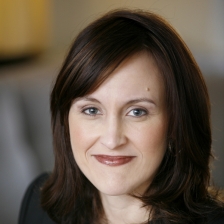
On March 16, the New York Public Service Commission quietly adopted a significant advancement in rate design. It did so as a result of a long proceeding on standby and buyback rates, in which AEE argued that owners of distributed generation not eligible for net metering (such as standalone storage facilities and institutions with combined-heat-and-power systems) were being overcharged for the customer-specific components of those rates. While the PSC action seemingly addressed a technical matter, the impact is a big win for advanced energy in New York, as it will lead to new rates much more favorable for a range of distributed energy resources (DERs).

 The White House issued a
The White House issued a  On November 6, Advanced Energy Economy hosted Heather Zichal, President Obama’s Deputy Assistant for Energy and Climate Change, at a breakfast for advanced energy business leaders, including AEE members. It was one of her final appearances as the President’s closest advisor on issues central to the advanced energy industry’s continued growth. In reflecting on her five years on the job, Zichal said the administration has accomplished more than was expected, but will need help from the advanced energy industry at the state and federal level to meet the challenges of the future.
On November 6, Advanced Energy Economy hosted Heather Zichal, President Obama’s Deputy Assistant for Energy and Climate Change, at a breakfast for advanced energy business leaders, including AEE members. It was one of her final appearances as the President’s closest advisor on issues central to the advanced energy industry’s continued growth. In reflecting on her five years on the job, Zichal said the administration has accomplished more than was expected, but will need help from the advanced energy industry at the state and federal level to meet the challenges of the future.